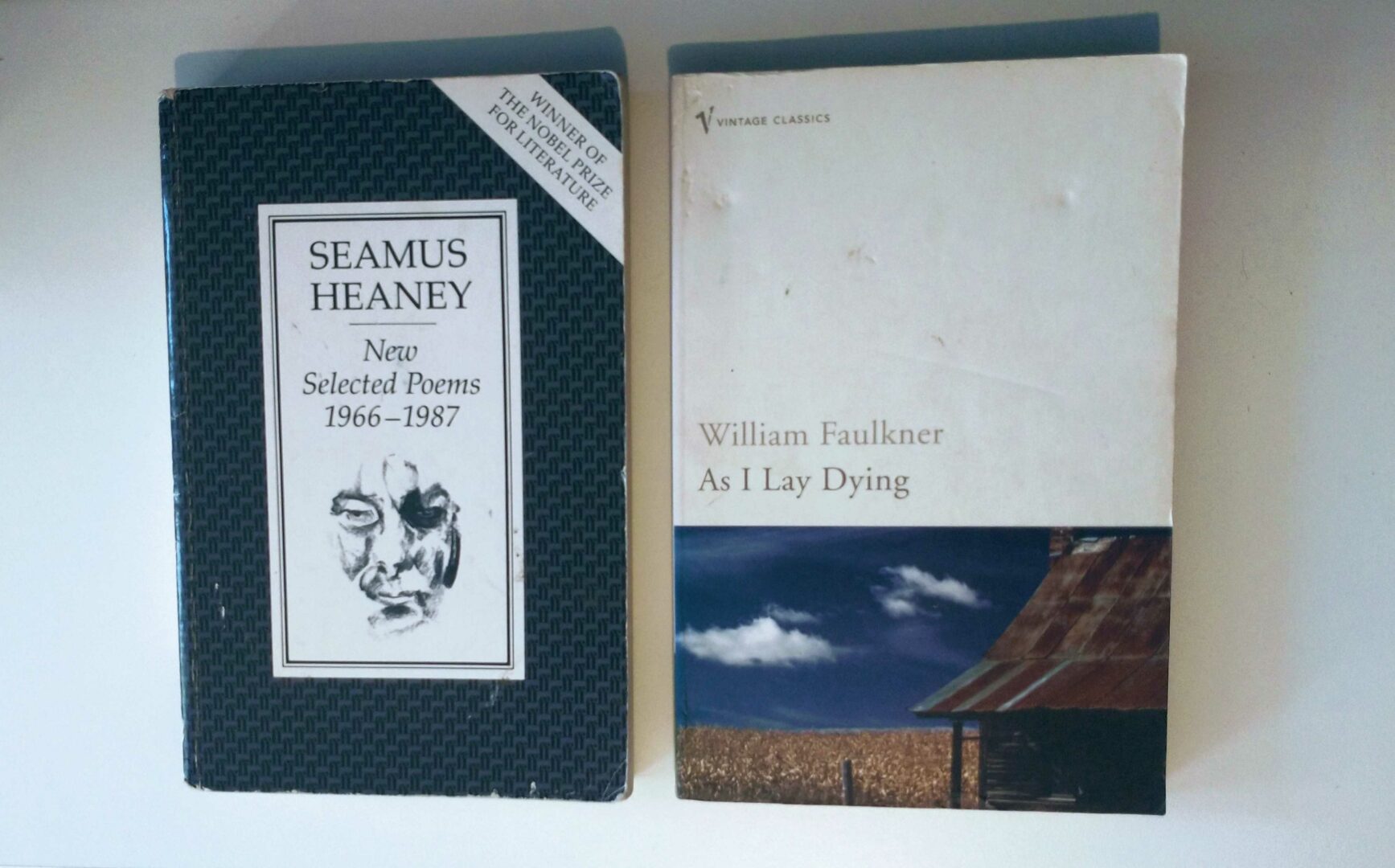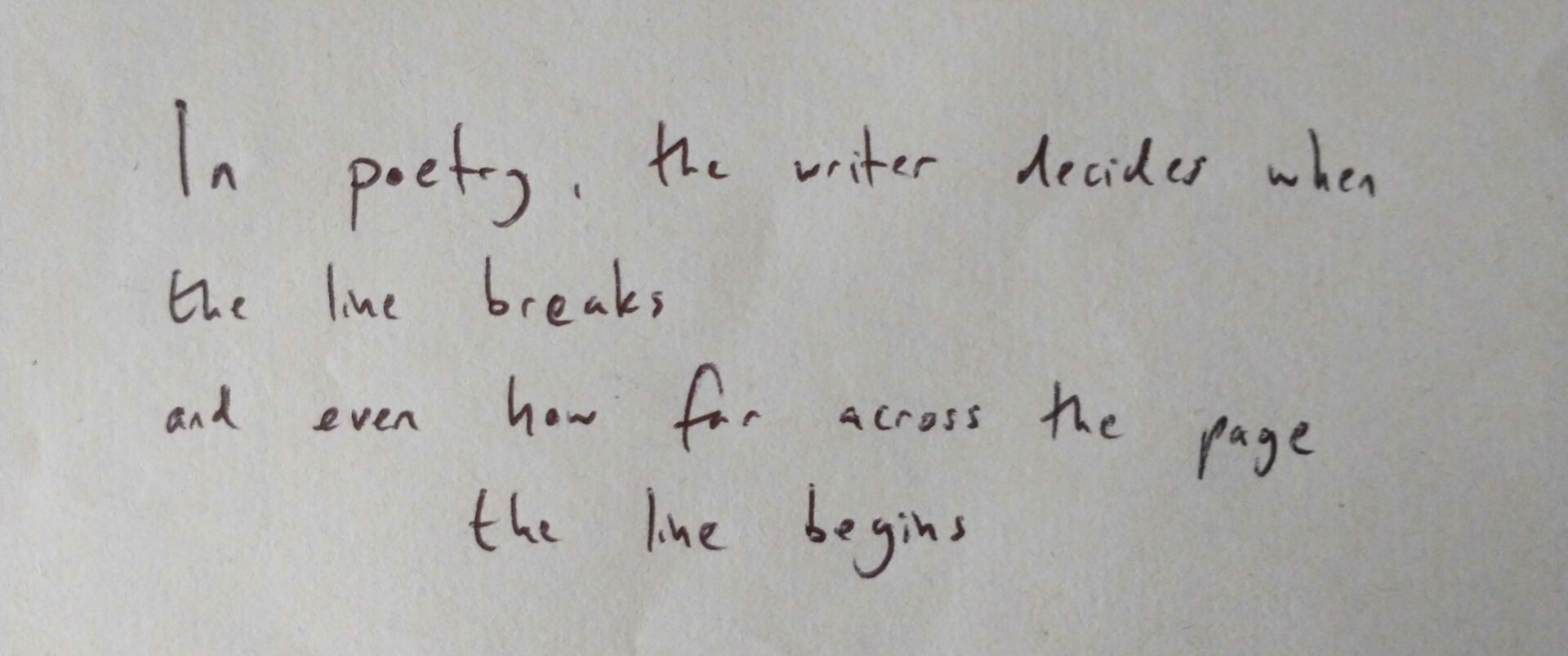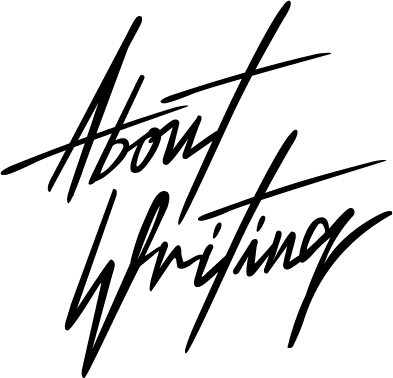
The difference between poetry and prose sounds like a superfluous question until you’re a writer with a bunch of words on a page (or still in your head) and you don’t know if you’re writing a poem or a story.
The difference isn’t in the length, for there’s that famous six-word story that Hemingway wrote to win a bet, or so the legend says. And there are extraordinarily long poems, such as Homer’s Iliad and Odyssey, and Dante’s Divine Comedy. The Mahābhārata, also, is a poem of approximately 1.8 million words in total.
And the difference isn’t in the use of what we typically describe as poetic language either. Take a look at the following two examples.
A passage from Henry Miller’s novel, Tropic of Cancer:
She rises up out of a sea of faces and embraces me, embraces me passionately — a thousand eyes, noses, fingers, legs, bottles, windows, purses, saucers all glaring at us and we in each other’s arm oblivious. I sit down beside her and she talks — a flood of talk. Wild consumptive notes of hysteria, perversion, leprosy. I hear not a word because she is beautiful and I love her and now I am happy and willing to die.
The opening of Philip Levine’s poem, A Simple Truth:
I bought a dollar and a half’s worth of small red potatoes,
took them home, boiled them in their jackets
and ate them for dinner with a little butter and salt.
The extract from the novel is more poetic. But the poem is more of a poem than the novel, and the novel would never be thought of as a poem. And these aren’t the only examples. Nabokov’s Lolita, the novels of Kerouac, and large sections of the novels of Joyce are more poetic than certain poems. You can feel a little lost in these thoughts.
Here’s my opinion. It’s about how the words appear on the page. I don’t think I could distinguish between poetry and prose through headphones. But I know a poem when I see it on the page. And that’s it – we see a poem. The only difference between prose and poetry is its presentation.

When writing prose, the beginning and end of a line is decided by the margins of the page and the conventions of grammar. That’s basically it. There is poetry that follows the same conventional rules as prose, but it’s almost always categorized as prose poetry.
But you’re still a writer with a bunch of words on a page (or in your head) wondering whether you’re working with a poem or a story.
How I decide between poetry and prose
I write poems and stories, and here’s how I determine what they will be. I see poems as photos, a snapshot of a place, person, or mood. And I see stories as movies.
The characters and places in my stories benefit from movement: a backstory and a future. The characters and places in my poems are captured moments that benefit from keeping everything else out.
As a result, my prose strives for clarity. If a character does something, the reader understands why. It might still be unexpected and strange, and the story might be nonlinear and unconventional in structure, but there is a reason. My poetry, on the other hand, is more delicate in nature. I ask readers to absorb the information and feel without questioning the character’s motive. The poem presents a moment or mood without justification. It says, “This is the world” and then promptly ends.
I think that each writer must develop their own sense of what defines poetry and prose. Consequentially, if the writer is lucky, they’ll create strange and original boundaries that don’t conform to genre and move it forward. It’s one way to make your writing original.
